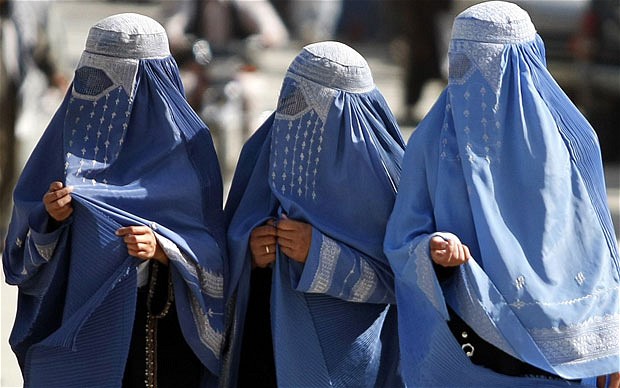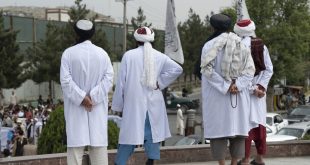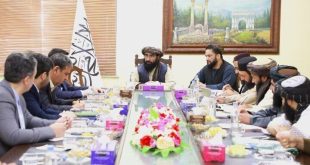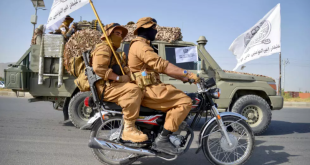By Hadi Miraan
The Afghan women’s tragic life situation is a historic dilemma that is the direct product of our prevalent culture, traditions and historic beliefs. After 9/11 when the Taliban regime overthrew by international alliance, the dilemma of Afghan women recognized internationally and beside many other issues, it situated at the center of international organizations to empower Afghan women who have been the silent victim of war and traditions.
Hectic efforts made to remove hurdles and ensure active participation of women in the society with out to target the cynical conservative attitude toward women that feeds from prevailing culture and traditions.
Today after seventeen years that the United States wants to leave Afghanistan, the life situation of Afghan women is still a dilemma and in spite of costly efforts there is no any radical change invisible in the prevailing conservative cultural perspective where women treats as an object for men’s prosperity.
There is no doubt that part of women’s problem is ostensibly solved, their participation in sociopolitical activities as well as their presence in in governmental, non-governmental organizations is remarkable but unfortunately this is an unstable reality that shaped under the pressure of international community and at the cost of billions of US $ and thousands of lives.
Even there are evidences that part of efforts and flexibility of many tribal chieftains, leaders and political figures in term of constitutionalizing women’s rights, have been an economic deal just to encourage international organizations for continuation of their investment without to demonstrate practical commitment to the women rights ground principles.
International community, which have been oblivious to the sociocultural realities of Afghanistan, was determined to democratize a society where conservative attitude towards women’s rights or any other human rights principles are the main reason of mass atrocities through history.
All this makes one wonder that what have done to ensure and safeguard women’s rights, have been designed in the form of short term projects without to consider the fact that democratization is a process to create new perspective rather than new style of life.
Democracy is a spiritual process that differs from modernisation and thus it needs to be enculturate within unrestricted time as well as to be implemented via socialization process. In spite of huge investment that made by international community to ensure and protect women rights, it seems that the prevailing conservative attitude towards women is adamant until the current socialization process is based on tribal and theological principles.
On the other hand to ensure and protect women rights, requires women oriented political structure to empower and mobilize women for a long term struggle. But unfortunately the lack of such a structure has prevented women to unify their voice for equal right with men and guarantee their meaningful participation in political leadership and policymaking process. It means that Afghan women are not a monolithic voice to demonstrate an organised and unified will that double down their demands. The generous aid of international community for reconstruction of Afghanistan specially for empowerment of women, has created an unrealistic expectation that the responsibility rest with the United States and its aliens in Afghanistan, to save Afghan women and ensure their presence in socio-political arena or to make it feasible.
With no doubt the United States are conscientiously responsible to help Afghanistan to pull it out from present turmoil, but it is not the United States commitment to bring the Afghan women out of the quagmire of deprivation and marginalisation as well as mitigate their pains.
Even expectation form men to protect women rights is another false perspective that never culminates in women’s freedom, prosperity and tranquility. Unfortunately the Afghan women are living with a superficial understanding of freedom and rights that might not help them to break the historical patriarchal chain and overcome the challenges that have encompassed their total life. There are many well-equipped national and international organizations which have spent billions of US$ to empower Afghan women but none of their strategies resulted in a significant improvement in prevailing radical perspective on women rights.
Therefore with respect to the protracted surge of violence that emanates from traditional and theological perspective on women, women right is still a shaky reality that its protection depends to the continuation of international community’s presence in Afghanistan. Women rights are part of human rights that might not be implementable in Afghanistan until democracy is not institutionalized as overwhelming socialization process.
On the other hand in the absence of stability and peace, every efforts to ensure and safeguard women rights are ineffective and under the current situation the prospect for a better life situation for Afghan women seems very remote. The psychological environment of Afghans is in need of peace and serenity, therefore the priority of Afghan women is not unbridled freedom rather than a secure life free of death and explosion.
But it said to ensure and protect women rights requires a political & cultural process by women that enable them to unify their voice for equal rights. In absence of a powerful and united womanish political front, every single effort for equal rights, is a metaphoric involvement that never result to any radical change. Therefore women rights is women question that might be ensure by women’s efforts, sacrifice and well-organized struggle based on modern logic and required knowledge and experience. Foreign or international aid is of significant importance in this respect, but to change the situation of women in Afghanistan is a domestic question that is in need of peace and instability.
 Afghanistan Times
Afghanistan Times




